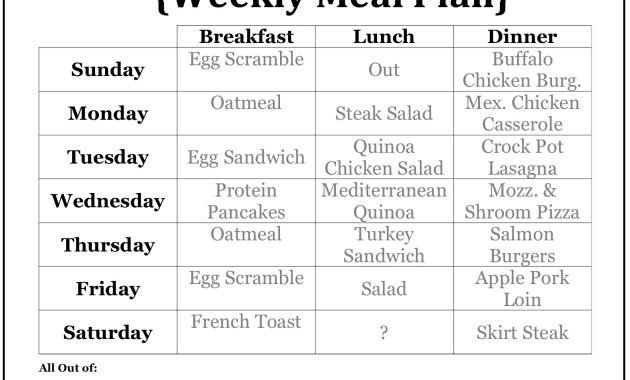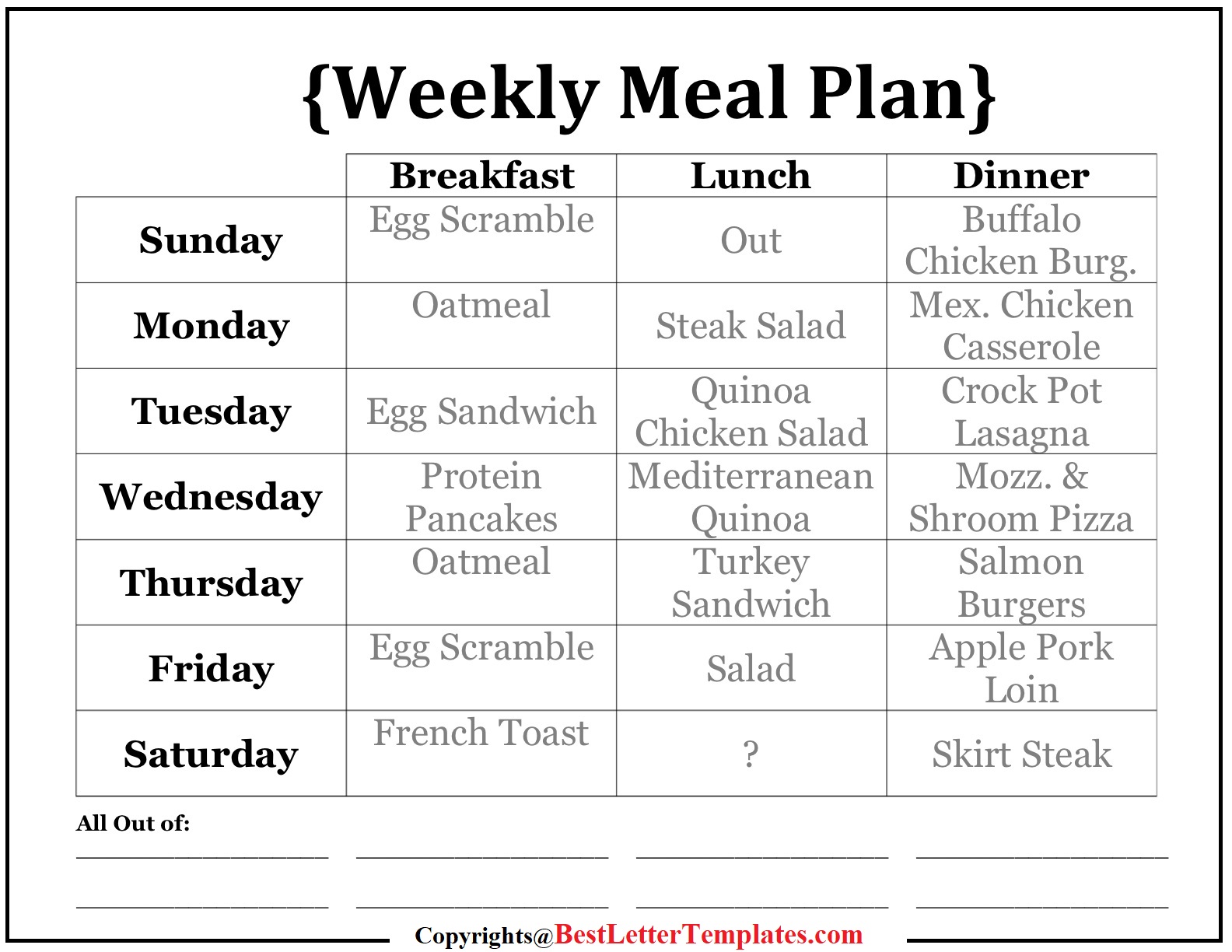
Diabet Weekly Meal Plan for Balanced Health: Navigating Nutrition with Confidence
Living with diabetes requires diligent management, and at the heart of this management lies a carefully crafted dietary plan. A diabet weekly meal plan for balanced health isn’t just about counting carbs; it’s about making informed choices that support overall well-being. This article provides a comprehensive guide to creating and adhering to a diabet weekly meal plan for balanced health, offering practical advice and actionable steps to help you thrive.
Understanding the Importance of a Diabetes Meal Plan
Diabetes, whether Type 1 or Type 2, affects how your body regulates blood sugar (glucose). A consistent diabet weekly meal plan for balanced health helps stabilize blood sugar levels, reducing the risk of complications like heart disease, kidney damage, and nerve damage. Moreover, it can contribute to weight management, improve energy levels, and enhance your overall quality of life.
The benefits of a well-structured diabet weekly meal plan for balanced health extend beyond just managing blood sugar. By focusing on nutrient-rich foods, you can provide your body with the essential vitamins and minerals it needs to function optimally. This proactive approach can empower you to take control of your health.
Key Principles of a Diabetes-Friendly Meal Plan
Creating a diabet weekly meal plan for balanced health involves several key principles. These guidelines help you make informed choices that support your health goals.
- Carbohydrate Counting: Understanding the carbohydrate content of your meals is crucial. Work with your doctor or a registered dietitian to determine your daily carbohydrate target.
- Portion Control: Managing portion sizes is essential to prevent overeating and maintain healthy blood sugar levels.
- Fiber-Rich Foods: Incorporate plenty of fiber-rich foods like vegetables, fruits, and whole grains. Fiber slows down sugar absorption.
- Healthy Fats: Choose healthy fats, such as those found in avocados, nuts, and olive oil, over saturated and trans fats.
- Lean Protein: Include lean protein sources like chicken, fish, beans, and tofu to help you feel full and satisfied.
- Hydration: Drink plenty of water throughout the day to stay hydrated and support overall health.
Building Your Diabet Weekly Meal Plan: A Sample Week
Creating a diabet weekly meal plan for balanced health can seem daunting, but with a little planning, it becomes manageable. The following is a sample meal plan that you can adapt to your needs and preferences. Remember to consult with your healthcare provider or a registered dietitian before making any significant changes to your diet.
Monday
- Breakfast: Oatmeal with berries and a handful of nuts.
- Lunch: Salad with grilled chicken or fish, mixed greens, and a light vinaigrette.
- Dinner: Baked salmon with roasted vegetables (broccoli, carrots, and zucchini).
- Snacks: A small apple with peanut butter, a handful of almonds.
Tuesday
- Breakfast: Scrambled eggs with spinach and whole-wheat toast.
- Lunch: Leftover baked salmon and vegetables.
- Dinner: Lentil soup with a side salad.
- Snacks: Greek yogurt with berries, a few celery sticks with hummus.
Wednesday
- Breakfast: Smoothie with protein powder, spinach, banana, and almond milk.
- Lunch: Turkey breast sandwich on whole-wheat bread with lettuce and tomato.
- Dinner: Chicken stir-fry with brown rice and plenty of vegetables.
- Snacks: A small orange, a handful of walnuts.
Thursday
- Breakfast: Whole-wheat pancakes with berries and a drizzle of maple syrup.
- Lunch: Leftover chicken stir-fry.
- Dinner: Vegetarian chili with a side of whole-grain bread.
- Snacks: A hard-boiled egg, a few baby carrots with hummus.
Friday
- Breakfast: Yogurt parfait with granola and fruit.
- Lunch: Tuna salad (made with light mayo) on whole-wheat crackers.
- Dinner: Pizza on whole-wheat crust with lots of vegetables.
- Snacks: A small pear, a few rice cakes with avocado.
Saturday
- Breakfast: Eggs and bacon with whole-wheat toast.
- Lunch: Leftover pizza.
- Dinner: Grilled steak with a large salad and a baked sweet potato.
- Snacks: A handful of trail mix, a few slices of cheese.
Sunday
- Breakfast: Pancakes with fruit.
- Lunch: Chicken salad sandwich.
- Dinner: Roast chicken with roasted vegetables.
- Snacks: A small apple with peanut butter, a handful of almonds.
This is just a sample diabet weekly meal plan for balanced health. You should adjust it based on your individual needs, preferences, and activity levels. Remember to consult with your healthcare team to create a personalized plan.
Foods to Include in Your Diabet Weekly Meal Plan
Focusing on the right foods is critical for a successful diabet weekly meal plan for balanced health. Here are some food categories to prioritize:
- Non-starchy Vegetables: These are low in carbohydrates and high in fiber. Examples include broccoli, spinach, kale, and bell peppers.
- Fruits: Choose fruits in moderation, as they contain natural sugars. Berries, apples, and oranges are good choices.
- Whole Grains: Opt for whole grains like brown rice, quinoa, and oats over refined grains.
- Lean Proteins: Include lean proteins like chicken, fish, beans, and tofu.
- Healthy Fats: Incorporate healthy fats from avocados, nuts, seeds, and olive oil.
- Dairy or Dairy Alternatives: Choose low-fat or non-fat dairy products or fortified plant-based alternatives.
Foods to Limit or Avoid
Certain foods can negatively impact blood sugar levels. Limiting or avoiding these foods is crucial for managing diabetes effectively.
- Sugary Drinks: Sodas, juices, and sweetened beverages can cause rapid spikes in blood sugar.
- Processed Foods: These foods often contain added sugars, unhealthy fats, and high sodium levels.
- Refined Grains: White bread, white rice, and pastries can quickly raise blood sugar.
- Saturated and Trans Fats: Limit saturated and trans fats found in red meat, fried foods, and processed snacks.
- Excessive Alcohol: If you choose to drink alcohol, do so in moderation and with food.
Tips for Sticking to Your Diabetes Meal Plan
Consistency is key when it comes to a diabet weekly meal plan for balanced health. Here are some tips to help you stay on track:
- Plan Ahead: Plan your meals and snacks for the week to avoid impulsive choices.
- Grocery Shop Smart: Make a shopping list based on your meal plan and stick to it.
- Prepare Meals in Advance: Cook meals or components of meals ahead of time to save time during the week.
- Read Food Labels: Pay attention to serving sizes and carbohydrate content on food labels.
- Eat at Regular Intervals: Maintain a consistent eating schedule to help regulate blood sugar levels.
- Stay Hydrated: Drink plenty of water throughout the day.
- Don’t Deprive Yourself: Allow for occasional treats in moderation.
- Seek Support: Talk to your healthcare team, a registered dietitian, or a diabetes support group.
Adapting Your Meal Plan to Your Lifestyle
Your diabet weekly meal plan for balanced health should fit your lifestyle. Consider these factors:
- Activity Level: Adjust your carbohydrate and calorie intake based on your activity level.
- Medications: Discuss your meal plan with your doctor to ensure it aligns with your medications.
- Cultural Preferences: Adapt your meal plan to include foods from your culture, focusing on healthy choices.
- Eating Out: Learn to make healthy choices when dining out by asking for modifications and choosing grilled or baked options.
Monitoring and Adjusting Your Plan
Regular monitoring is crucial for managing diabetes. Use a blood glucose meter to track your blood sugar levels, and keep a food journal to record what you eat. This information will help you identify patterns and make necessary adjustments to your diabet weekly meal plan for balanced health.
Work closely with your healthcare team, including your doctor and registered dietitian, to make informed decisions about your diabetes management plan. They can provide guidance and support to help you achieve your health goals. A well-managed diabet weekly meal plan for balanced health is a powerful tool.
The Role of Exercise
Exercise plays a crucial role in diabetes management. Regular physical activity helps improve insulin sensitivity, which in turn helps control blood sugar levels. Aim for at least 150 minutes of moderate-intensity aerobic exercise or 75 minutes of vigorous-intensity exercise per week, plus strength training exercises at least twice a week.
The Psychological Aspect of Diabetes
Managing diabetes can be emotionally challenging. It’s important to address the psychological aspects of diabetes, such as stress, anxiety, and depression. Consider seeking support from a therapist or counselor who specializes in diabetes management. Talking about your feelings and experiences can make a big difference.
Conclusion: Embracing a Healthy Lifestyle
A diabet weekly meal plan for balanced health is an essential part of managing diabetes. By understanding the key principles, planning your meals, and making healthy food choices, you can effectively control your blood sugar levels and improve your overall health. Remember to consult with your healthcare team, stay consistent with your plan, and embrace a healthy lifestyle that includes regular exercise and stress management. The journey may have challenges, but the rewards of a healthy life are well worth the effort. Prioritizing a diabet weekly meal plan for balanced health is a step towards a healthier, more fulfilling life.
[See also: Related Article Titles]

